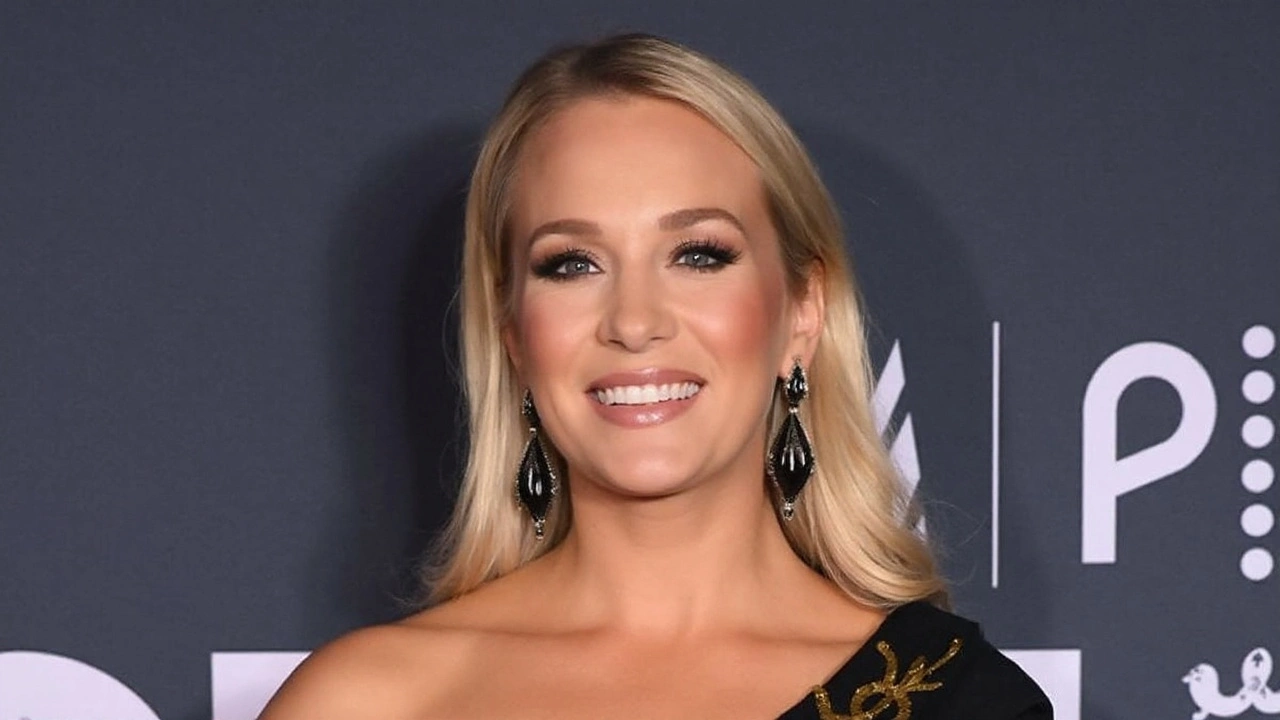The class bell rings: Underwood, Bryan, and Richie are back for Season 24
Class is officially back in session at Idol University. ABC confirmed that American Idol is bringing back its current judging trio—Carrie Underwood, Luke Bryan, and Lionel Richie—for Season 24, which lands in 2026 on ABC with streaming on Hulu. The announcement dropped in a tongue-in-cheek YouTube video, where the three styled themselves as professors welcoming a new crop of hopefuls.
This is the second straight season for this exact lineup. Underwood, an eight-time Grammy winner and the show’s most famous alum, joined the panel in Season 23 after Katy Perry wrapped her run. Bryan—twice named CMA Entertainer of the Year—and Richie, a four-time Grammy-winning icon, have held their seats since the show’s 2018 revival on ABC (Season 16). The network, keen on continuity, is betting on their chemistry and distinct coaching styles to anchor the next cycle.
The video laid out their classroom personas: Richie as the “professor of positivity,” Bryan as the “Professor of fun,” and Underwood inviting singers to “sign up for my class” where they’ll “be blown away.” It’s a playful framing, but it fits the show’s evolving pitch: Idol as a crash course in performance, resilience, and stagecraft, taught by working artists with very different lanes.
There’s one noticeable omission in the release: no formal mention of host Ryan Seacrest, who has helmed the franchise since its 2002 debut. Network chatter in recent months has pointed to him continuing, but ABC didn’t put it in writing this time. Expect clarity closer to premiere as production tightens dates and marketing.
Last season’s finish underscored why Idol still clicks with mainstream audiences. Jamal Roberts, a Mississippi PE teacher and father of three, rose from classroom to confetti, closing with Tom Odell’s 2013 ballad “Heal.” His win fit the show’s sweet spot: a grounded story, a patient build across episodes, and a final performance that stuck the landing. The judges leaned into mentorship over spectacle, which is exactly what the franchise is signaling again with the “Idol University” branding.

Auditions, timing, and what singers can expect in 2026
Auditions for Season 24 start August 26, 2025, with the return of Idol Across America—the nationwide live virtual search that connects producers and contestants in real time across all 50 states and Washington, D.C. The show will also run open call auditions, available worldwide to eligible entrants, with regionally focused dates slotted throughout September 2025. The hybrid approach lets producers cast a wider net and keep momentum moving before cameras roll.
- August 26, 2025: Idol Across America virtual auditions kick off nationwide
- September 2025: Regional open call audition dates scheduled across multiple windows
- 2026: Season 24 airs on ABC with next-day streaming on Hulu
If you’re considering a tryout, the format you’ll walk into is the familiar gauntlet. Producers screen thousands through virtual rooms and open calls, searching for strong vocals, a clear artistic lane, and a story that holds up on TV. Hollywood Week compresses pressure and collaboration, the Showstopper round winnows the field for live competition, and from there it’s the sprint of weekly themes, audience votes, and judge saves. The show has shifted some mechanics over the years, but the central test—consistency under bright lights—hasn’t changed.
Underwood’s presence will be interesting for contestants. She’s a former champion who built a stadium-scale career from the same launchpad they’re stepping onto. Expect her notes to lean into control, endurance, and how to scale a performance from rehearsal room to arena. Bryan, who’s lived the road grind in contemporary country, tends to home in on tone, believability, and what works in front of a crowd that’s not already on your side. Richie brings classic songwriter instincts—melody, phrasing, and the emotional core of a lyric—often pushing singers to simplify, not over-decorate.
The trio’s “professor” personas aren’t just a gag. Idol has gradually moved away from the arm’s-length judge role into active mentorship, and the classroom framing makes that explicit. Where earlier eras prized sharp critique, this iteration favors constructive coaching. That’s not softness; it’s strategy. A well-timed arrangement tweak or tempo shift can save a contestant’s week and, sometimes, their entire run.
Season 24 will also pick up where Season 23 left off: leaning into songs that tell stories and arrangements that feel current. Jamal Roberts’ winning performance of “Heal” wasn’t a vocal fireworks display; it was a dynamic build with space to breathe. Producers have been giving finalists more room to shape their arrangements, which can turn a familiar song into a personal statement—crucial when vote margins get razor-thin.
As for Katy Perry’s exit before Season 24, it reshaped the panel without upending the show’s tone. Underwood slid into that seat and brought a different kind of authority—less pop industry insider, more alumni blueprint. Perry’s legacy includes some of the franchise’s most memeable TV moments and sharp instincts for contemporary radio. Underwood’s edge is credibility with Idol’s core: viewers who still believe a great live vocal can change a life.
Behind the scenes, the timing signals a steady production rhythm. Launching auditions in late August gives producers months to sift through talent before Hollywood Week. It also gives contestants time to prep repertoire, lock in a lane, and work out nerves on smaller stages. The virtual component—kept from pandemic-era necessity—has become a permanent feature because it works. It removes travel hurdles and lets the show sample more voices quickly.
For contestants, a few practical notes tend to matter every season: pick songs you can live inside, not just reach for at the top; bring a second option that shows a different gear; and keep arrangements clean. Judges reward growth, not just range. If your first audition is all power, make the second about color and restraint. The panel notices when you’re making choices, not just hitting notes.
On the network side, airing in 2026 with Hulu streaming keeps Idol in the two-screen world where it thrives. The live broadcast lets fans vote in real time, while on-demand viewing helps performances travel beyond their first airing. That replay value has kept the franchise competitive in a crowded TV slate, especially when a breakout audition or finale number goes viral the next morning.
Bryan and Richie’s long run since 2018 has given the show continuity, which matters for a format that depends on viewer trust. Fans know what they’re getting—warmth, humor, and straight talk when it counts. Add Underwood, and the panel tilts a little more technical. Expect sharper notes on mic control, breath, and phrasing, especially on big ballads and crossover country-pop.
The “Idol University” pitch may read like a gimmick, but it sets the tone for the season. The best contestants treat the show like a crash course—absorbing weekly feedback, adjusting, and making quick, high-stakes choices. By the time live shows hit, the finalists who last tend to be the ones who learned fast and didn’t waste a theme week.
Season 24 will answer the Seacrest question soon enough, but the core is locked: three judges with very different strengths, auditions opening in late summer, and another year of possibility for singers who think they’ve got a shot. The door is open. The syllabus is printed. Now it’s about who shows up and what they do when the red light comes on.
